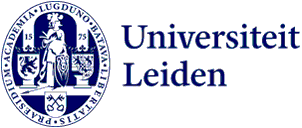
‘The goal is that we no longer have to talk about open science because all science is open’
Paul Wouters has been involved in open science for 30 years, from his first introduction to a preprint server in 1992 to his recent roles as Dean of the Faculty of Social and Behavioural Sciences and open science ambassador for Academia in Motion. Wouters is now retiring. He is leaving with high hopes for the future of open science at Leiden University.

What was your first experience with open science?
‘That was in the early 1990s, way before our current internet came into existence. There was another kind of network at the time between American universities. This preprint server was set up in high-energy physics to allow the faster exchange of data so you wouldn’t have to wait until something finally appeared in a journal. It had me fascinated. Since then, I’ve been involved in open science in all sorts of different ways.’
What made open science so appealing to you back then?
‘Being able to make academic knowledge more accessible to the people who are not in that small group. Academic communities are often rather narrow networks of people with a very specialised education. The idea of being able to share information much faster and encourage debate fascinated me. The electronic side also appealed to me: the fact that you don’t exchange printed journals but can rapidly add things to databases from your own computer.’
And what was your first official role with open science here in Leiden?
‘When I was working at the CWTS five years ago, Kurt de Belder, the director of Leiden University Libraries, advised the Executive Board all about open access − and he still does, by the way. It became clear at a certain point that this needed to be broader, so Kurt took the initiative to suggest me to the Executive Board as an open science ambassador. I immediately said yes.’
That’s not that long ago seeing as there were already preprint servers in the 1990s.
‘That’s true. Open science is a matter of developing new forms. That takes a long time, also because it is a culture change. Science obviously doesn’t want to tell any old story but a story that is based on comprehensive research. You’re not going to just relinquish the methodology that you have been trained in. You can’t throw away your old shoes until you have a new pair. That’s how I see it anyway. Changing a system is quite an undertaking and I think we should take our time to do so. In that respect, I don’t see 25 years at that long at all.’
What have you seen change in the past five years?
‘Loads! We have a much better idea of what is already happening in open science. We initially prioritised open access and open data. Then much more turned out to be happening and we now have a fantastic Citizen Science Lab and Open Science Community, for example. The main achievement of the past years is not just that we have developed a very well-conceived open science programme but also that people from all faculties have worked on it. This diversity is a very important feature and achievement.
‘And lastly, what I have seen change is the Executive Board’s awareness of what is already happening in the community: connecting the Board’s desire to develop an open science policy with the inspiration that is already present in our community. All in all, a fantastic foundation for further development.’
What is your hope for the future of open science in Leiden?
‘The aim is, of course, that we no longer have to talk about open science because all science is open − which doesn’t mean that all data is on the street. To protect data, there will also need to be publications that you don’t make public straight away. As a university community, we want to be an example and show that the way we develop knowledge is something that the whole of the Netherlands and the entire international community can be part of and proud of.
‘So that is my hope: that we as Leiden University can be a shining example and a source of inspiration to people. That was and is the reason for me to champion open science.’
Text: Friedel Grant
Banner photo: Monique Shaw
